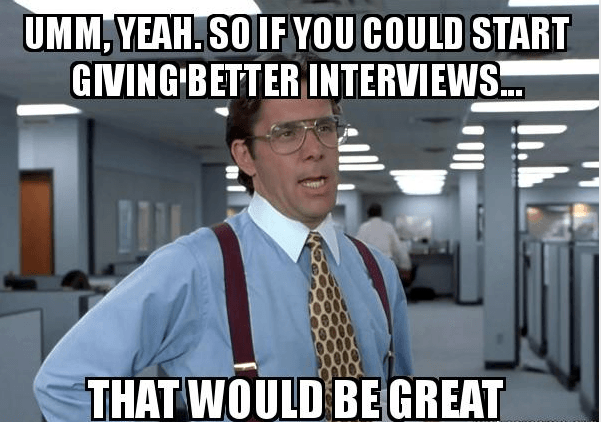Candidates: Are you interviewing and need support?

Your Job Interview Skills Aren’t as Good as You Think. Enough said. No, really though. Behavioral economics has much to teach us and one of those things is that we massively over-rate ourselves and are way more confident that we really should be on several things. One of those? Job Interviewing. Many hiring managers assume their well-honed radars can pick up signals from talented people. In reality, although our minds do an excellent job of making snap judgments, our experiences and biases often cloud those judgments. Psychologists have identified two biases, similarity bias and confirmation bias, that make humans really bad at interviewing. Fortunately, self-knowledge, better processes, and the promise of predictive analytics will change the way you hire new people.
“He’s Just Like Me!”
Similarity bias means that we subconsciously prefer candidates who share certain qualities with us, including demographics, temperament, and interests. It’s a bias that runs amok in unstructured interviews, when hiring managers think they can evaluate candidates based on unstructured conversations. Structured interviews do a lot to conquer similarity bias. They ask the same questions of every candidate and evaluate answers using an objective scoring system. Incorporating some structured interviewing techniques, including behavioral and situational judgment questions, will get similarity bias out of your interviews.
Behavioral Interview Questions
In behavioral interviews, which are familiar to most HR professionals, you construct scenarios in which candidates would display the competencies that are most important to you. Then, you ask them about a time in which they’ve faced similar scenarios. Since past performance tends to predict future performance, their answers tell you what they’d do in present-day situations. For example, if you say, “Tell me about a time when you had to tell a manager you’d made a mistake,” the way the candidate handled it before will tell you a lot about how they’d handle it now.
Situational Judgment Questions
When people face scenarios that have multiple interpretations, they tend to select explanations that match what they would do in a similar situation. Questions based on these ambiguous scenarios, called situational judgment questions, can give you insight into how a person might fit with your company culture. Adam Grant, a professor at the Wharton School of Business, offers this example of a situational judgment question: “You help Bill find a job, but then you don’t talk for a few months. Suddenly, Bill sends you an email suggesting a potential sales lead. Why did Bill send you this message?” Grant himself used this question to determine whether applicants were “givers” or “takers.” Givers enjoy helping with no strings attached while takers tend to take more from others than they give in return. The candidate’s answer isn’t really a guess about what Bill would do. It’s a reflection of how the candidate would feel in Bill’s situation.
- An answer of “Bill wanted to pay me back” suggests that the candidate, after receiving help from someone, would look for a way to return the favor.
- An answer of “Bill wants me to help him again” suggests that your candidate has self-serving motives when asking for favors.
Grant points out that one question isn’t enough; you have to ask between six and 25 situational judgment questions to create a good assessment tool. Used correctly, they can reveal potential interpersonal sticking points that candidates won’t admit during an interview.
“She Made a Great First Impression”
Most interviews begin with an unmistakable first impression. Then, throughout the rest of the interview, we notice only the details that confirm our first impression. First impression bias, better known as confirmation bias, is why so many books tell candidates that the first five minutes of a job interview are the only minutes that matter. To overcome confirmation bias, add work sample tests to the structured interview. Let candidates tackle an on-the-job problem and evaluate how well they perform. Great test performance softens a bad first impression, and poor test performance saves you from hiring someone who won’t cut it in the job.
Predictive Analytics: A World Without Biases
In his recent interview on the Fistful of Talent podcast, HireVue’s Chief Data Scientist Ben Taylor discusses how predictive analytics will change everything about the way we hire. He believes that by going beyond traditional assessments and analyzing candidate voice characteristics, video interviews, and even language usage, we’ll finally choose candidates based on objective criteria, unhindered by our biases. In other words, structured interviewing and work sample tests can go a long way toward eliminating bias. Predictive analytics might just kick them out of the interview room for good.


